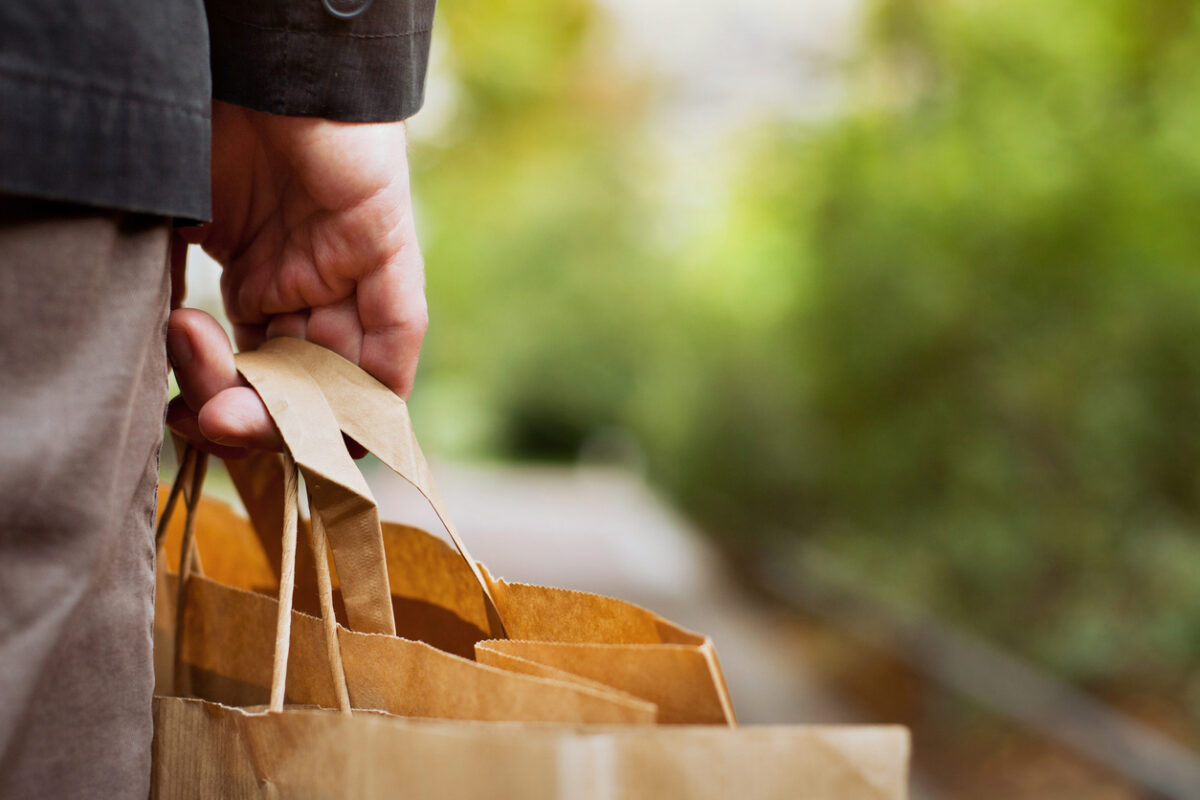Overview:
-Ferndale's Western Market grocery store ditched single-use plastic bags in 2019.
-Detroit People's Food Co-op has offered only paper bags since opening in 2024.
-Western Market pays 25-50 cents per paper bag, a significant increase from plastic.
In 2019, Ferndale’s Western Market grocery store proudly announced on Facebook that it would no longer be offering single-use plastic bags. The post was met with overwhelming support, garnering nearly 500 positive reactions, the vast majority in support of the new policy.
Among the comments were “One more reason to be a fan,” “Thank you for leading by example! Loyal to you,” and “If it’s possible to love you guys more than we already do…this sealed the deal!”
“It’s an effort to become more of a sustainable store, to reflect the ideals of our customers and a lot of our staff,” said Alana Carlson, Western Market’s marketing manager.
Detroit People’s Food Co-op forgoes plastic from day 1
Western Market is one of several grocery stores in Metro Detroit that has taken steps to reduce or remove single-use plastic bags in their stores to support environmental sustainability.
When Detroit People’s Food Co-op opened at 8324 Woodward Ave. last May, it intentionally chose to only offer paper bags for shoppers.
Detroit People’s Food Co-op General Manager Akil Talley said the grocery store was meant to be a beacon of change for the community, which once considered the North End a food apartheid area.
“Everything that we did was intentional in terms of making sure that we weren’t creating those extractive practices that other grocery stores had done within the city,” Talley said.
“Being aware of our footprint in the ecological system within the city is one of those things that goes back to making sure we’re being intentional with how we operate within this space.”
The shift away from plastic bags isn’t new and has been embraced by several national chains with a presence in metro Detroit.
Whole Foods eliminated plastic bags from its stores in 2008. Trader Joe’s and ALDI followed suit in 2019 and 2023, respectively, with the latter charging up to 20 cents a bag or more to offset the cost and encourage customers to bring reusable bags. In 2018, Kroger announced it would eliminate single-use plastic bags from its stores by 2025, although that goal is still in process.
Studies show the trend is expected to continue. A 2024 report from Technavio predicts the North American paper bag market size will increase by $926.54 million at a compound annual growth rate of 6.46 percent between 2023 and 2028.
MORE REPORTING FROM PLANET DETROIT
Can solar power ease energy burden for Detroit’s low-income communities?
A $200,000 grant from the U.S. Department of Energy is enabling the North End Woodward Community Coalition to establish a community solar trust. This initiative will install solar arrays at key sites in Detroit’s North End, Highland Park, and Hamtramck, generating energy credits to be redistributed to local residents.
Waste Reimagined: Artists turn trash into art
As a part of her residency, artist Halima Cassells will lead three workshops on turning trash collected from the Rouge River into an art installation that will live at Eliza Howell Park.
FAQ: Detroit Food Commons welcomes Black-led co-op grocery store
The Detroit People’s Food Co-op will sell locally grown produce, groceries, baked goods and more under a community-owned model.
The tradeoffs of paper vs. plastic
Opting for paper bags is not without its challenges. Paper bags are less durable and waterproof than plastic and cost significantly more.
Carlson estimated Western Market pays between 25 to 50 cents per paper bag, while plastic bags may be less than 10 cents per bag.
She said the store has considered options on how to offset those costs, like charging customers to use the paper bags – like ALDI – or implementing a plastic bag option where people could donate their old plastic bags for customers to use, so those bags could be recycled.
Talley at Detroit People’s Food Co-op said the co-op built in the higher bag fees into its business costs.
“In the grocery business, there is very small margin in terms of profitability, so there are going to be areas that we’re just going to have to be a little smarter with how we purchase,” he said.
There’s also a question of how environmentally friendly paper bags actually are. Paper bags require a significant amount of wood and water to process – with some estimates that it takes up to four times the amount of energy to produce than plastic – and contribute to deforestation.
Still, plastic bags rely on oil – a non-renewable resource – for production and can take hundreds of years to decompose. Irresponsible disposal has resulted in significant harm to wildlife, especially in oceans, that becomes entangled in plastic bags or mistakes them for food, which causes significant harm and works its way up the food chain.
It’s estimated 400 million tons of plastic bags are used per year globally.
‘Much better for the earth’
Local paper bag consumers said they believe opting for paper to be a more environmentally responsible option. At Nino Salvaggio International Marketplace, a local grocery chain, cashiers proactively ask customers if they want paper or plastic when checking out, and paper bag users outside their Troy location said the paper option was important to them.
Melissa Tillery – who likes to repurpose her paper bags to protect her table when painting – said she’s seen firsthand the effects of extreme plastic bag usage in Bangkok, Thailand, where her parents are from.
“You see it in trees, you see it in the oceans,” she said. “I just prefer to use something that’s a little bit [more] compostable, so that way it’s much better for the Earth.”





